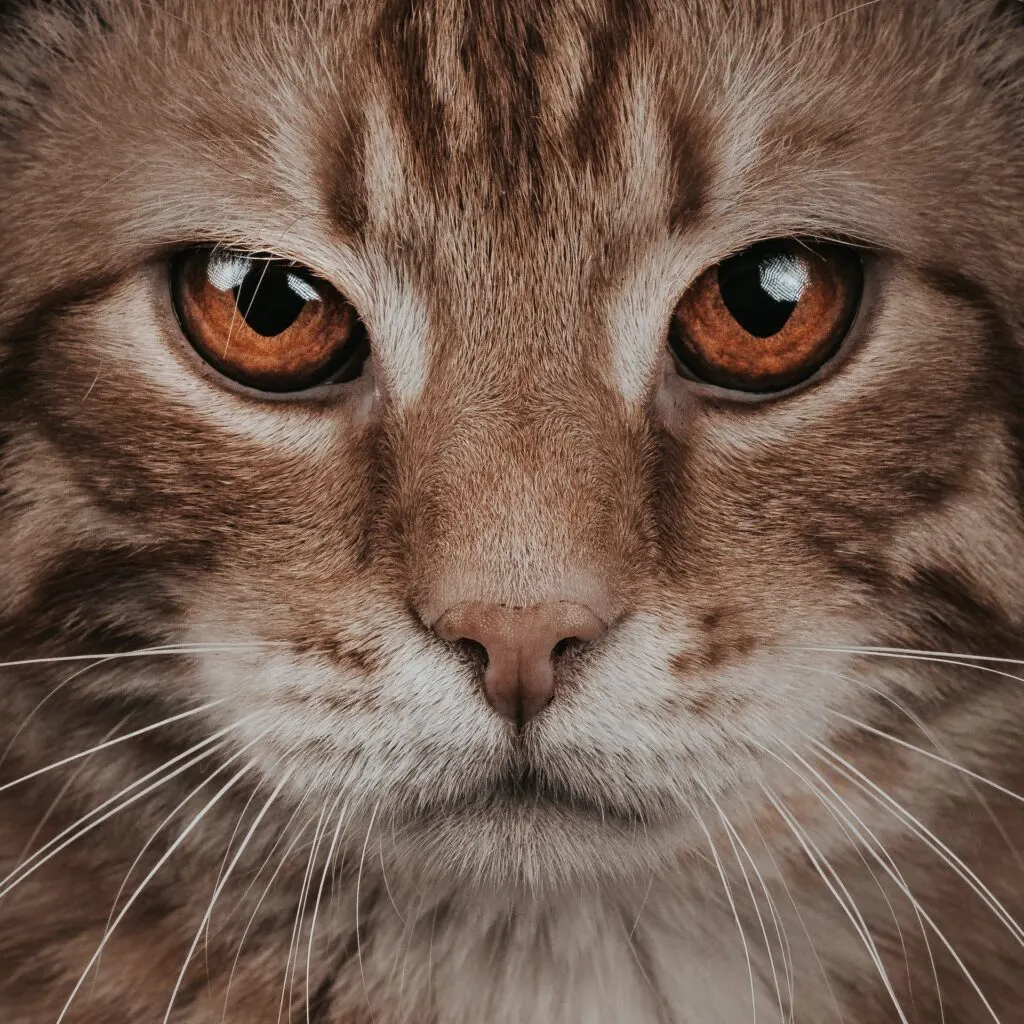Welcome to Early Signs Of Cat Pregnancy: What To Look For.
Have you noticed changes in your female cat’s behavior or appearance recently? She may be pregnant. Just like humans, cats also go through a period of pregnancy. Cats are adorable creatures that many people love to keep as pets. If you are a cat owner, it is essential to understand the signs that indicate your cat might be pregnant.
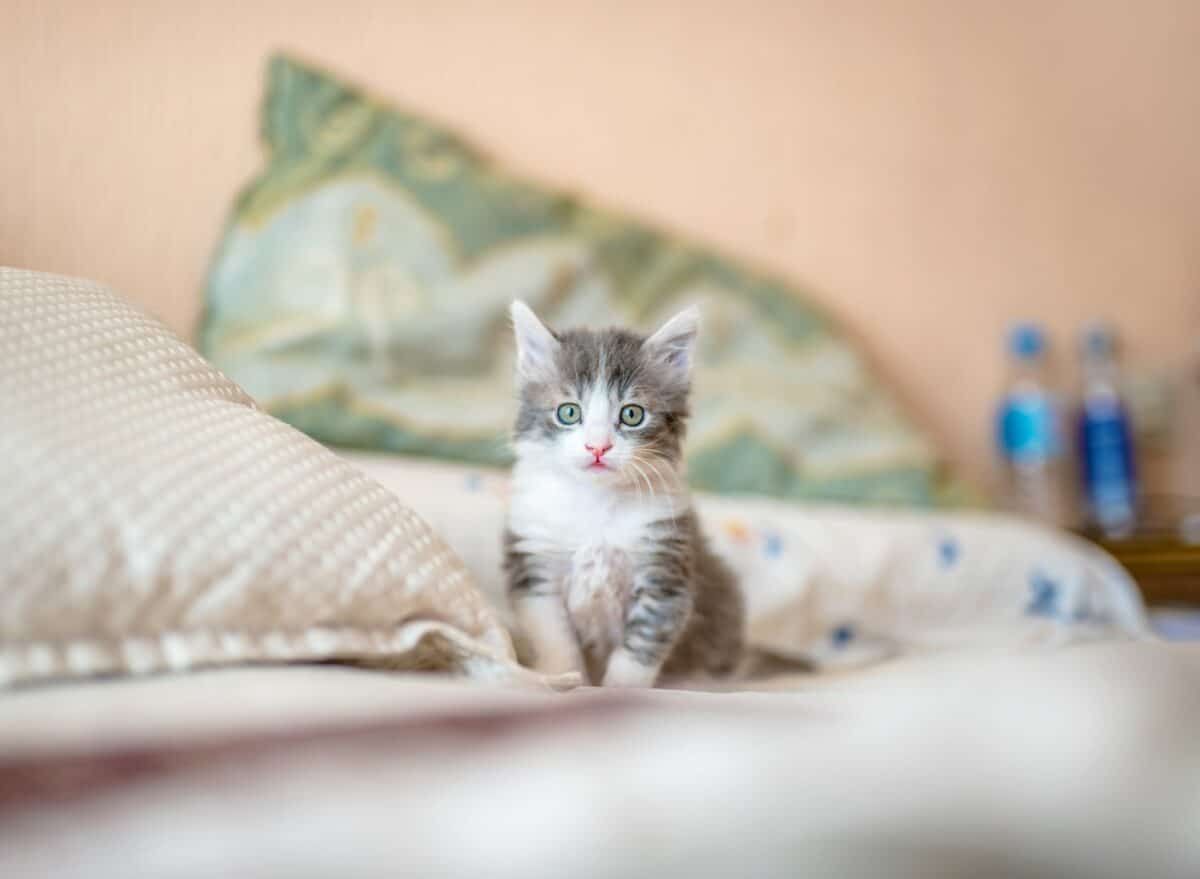
Knowing the early signs of cat pregnancy can help you provide your feline friend with the necessary care and support during this sensitive time. In this guide, we will discuss the signs that indicate your cat (or every big cat) is pregnant so that you can be prepared for the arrival of the new kittens.
| Key Points on Cat Pregnancy |
| Cats are wonderful companions, and as responsible pet owners, keeping track of their health and well-being is essential. One of the most exciting times for a cat owner is when their beloved feline expects kittens. |
| If your cat is pregnant, she may experience a sudden increase in appetite. She may start eating more than usual or may prefer certain foods. |
| Pregnancy can cause behavioral changes in cats. Some cats can also grow to be extra affectionate and clingy, while others can also grow irritable. |
| Bringing your cat to a veterinarian can help you confirm if she’s pregnant and get guidance on providing proper care during her pregnancy. |
| Keep an eye on the usage of the cat’s litter box during her pregnancy. Any changes in the frequency or consistency of her urine or feces could indicate a health issue that requires veterinary attention. |
Read the entire article about cat pregnancy, or jump to any section you like.
Early Signs Of Cat Pregnancy?
Cats are wonderful companions, and as responsible pet owners, keeping track of their health and well-being is essential. One of the most exciting times for a cat owner is when their beloved feline expects kittens.
However, it’s difficult to tell if a cat is pregnant, especially in the early stages. Here’s a comprehensive guideline about the early signs of cat pregnancy that will help you determine if your cat is expecting.
- Cravings
Pregnant cats may experience a sudden increase in hunger. She may start eating more than usual or may prefer certain foods. On the other hand, some cats may lose their appetite in the first few weeks of pregnancy.
- Behavioral Changes
Pregnancy can cause behavioral changes in cats. Some cats can also grow to be extra affectionate and clingy, while others can also grow irritable. Watch for any unusual behavior in your cat, as this could be an early sign of pregnancy.
- Swollen Nipples
Around two weeks after conception, your cat’s nipples will swell and become more prominent. It is a clear sign of pregnancy and very noticeable.
- Weight Gain
As the pregnancy progresses, your cat will start to gain weight. However, it is vital to note that now no longer all cats will gain weight simultaneously. Some cats may show little to no weight gain until the later stages of pregnancy.
- Dizziness And Morning Sickness
Like humans, cats may suffer from morning sickness while pregnant.
If your cat starts vomiting or seems nauseous, this could signify pregnancy.
- Increased Sleeping
Pregnancy can be tiring for cats, and you may notice that your feline friend sleeps more than usual. It is because the body is working hard to support the growing litter of kittens.
- Changes In Appearance
As the pregnancy progresses, you may notice changes in your cat’s appearance. Cats’ stomachs may become visibly more prominent and have a rounder, fuller appearance. You may also see that her coat is shinier and healthier looking.
What Steps Should You Take If Your Cat Is Expecting?
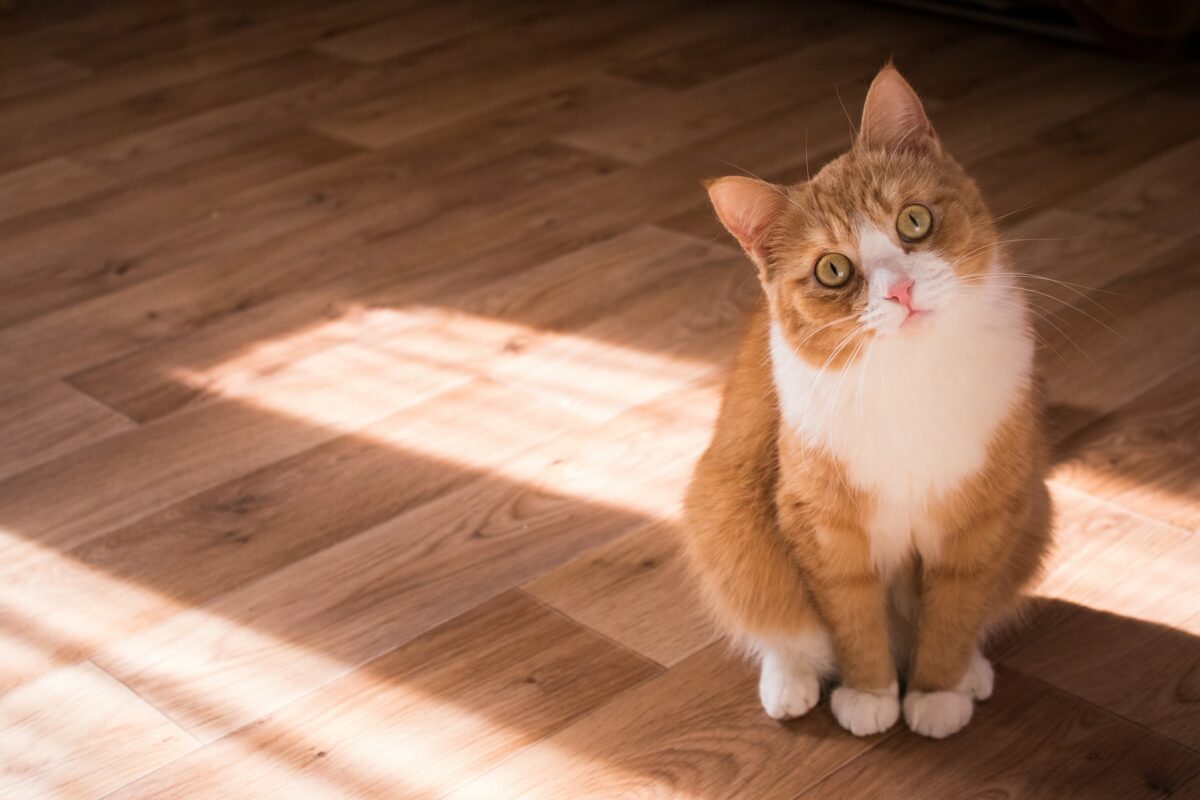
If you suspect your cat is expecting, there are some things you should do to ensure that she has a safe and healthy pregnancy.
- Bringing Your Cat To A Veterinarian
Bringing your cat to a veterinarian can help you confirm if she’s pregnant and get guidance on providing proper care during her pregnancy.
- Adjust Her Diet
Pregnant cats need a diet rich in protein and nutrients. Your veterinarian can suggest the most suitable diet for your cat throughout her pregnancy.
- Offer A Cozy And Comfortable Area.
Ensure that your cat has a secure space to relax in. A castle is a serene place where cats can rest without any disturbance.
- Monitor Her Health
Keep an eye on your cat’s health during pregnancy. Get in touch with your veterinarian promptly if you observe any indications of illness.
- Make Arrangements For Delivery.
You must prepare a nesting box for your cat to give birth. Make sure it is lined with soft blankets and towels.
- Be Patient
Cats have a gestation period of around nine weeks, so be patient and give your cat plenty of love and attention.
By taking these steps, you can ensure that your cat has a safe and healthy pregnancy and that her kittens are born healthy and happy.
Changes In Your Cat’s Appetite
As a cat owner, paying close attention to your pregnant cat’s appetite is essential, as it can significantly impact her and the unborn kittens’ health. Here is a comprehensive guideline to help you understand your pregnant cat’s appetite changes and what you can do about it.
- Normal Appetite
During the first few weeks, your cat’s appetite may remain unchanged. However, your cat’s appetite will likely increase as the pregnancy progresses. Pregnant cats require more calories to support their growth and the growth of their kittens. They may eat up to twice as much as usual during the later stages of pregnancy.
- Decreased Appetite
If your pregnant cat eats less than usual, it could indicate a health issue such as an infection or digestive disorder. Other factors such as stress, changes in routine, or a new food can also cause decreased appetite.
- Increased Appetite
If your pregnant cat suddenly eats significantly more than usual, it could indicate a health problem such as diabetes or hyperthyroidism. However, in most cases, an increased appetite is normal during pregnancy.
- Signs Of Appetite Changes
Watch out for signs of appetite changes such as sudden weight loss, lethargy, and changes in behavior or mood. If your cat stops eating, it is essential to seek veterinary attention immediately.
- Feeding Tips
Provide your pregnant cat with high-quality, nutritious food that meets her increased dietary needs. Make sure that she can reach clean water at any given time.
During the later stages of pregnancy, your cat may benefit from smaller, more frequent meals to help her digest her food more efficiently.
- Other Factors
Ensure your pregnant cat’s environment is stress-free and free from any potential sources of anxiety. Offer ample physical activity and play opportunities to maintain your cat’s fitness and well-being.
Your pregnant cat’s appetite changes regularly, but pay close attention to her eating habits and behavior. Providing your cat with a nutritious diet, access to fresh water, and a stress-free environment can help maintain her overall health and well-being during pregnancy.
Learn more about Feeding your pregnant cat here.
When Does Heat Behavior Start?
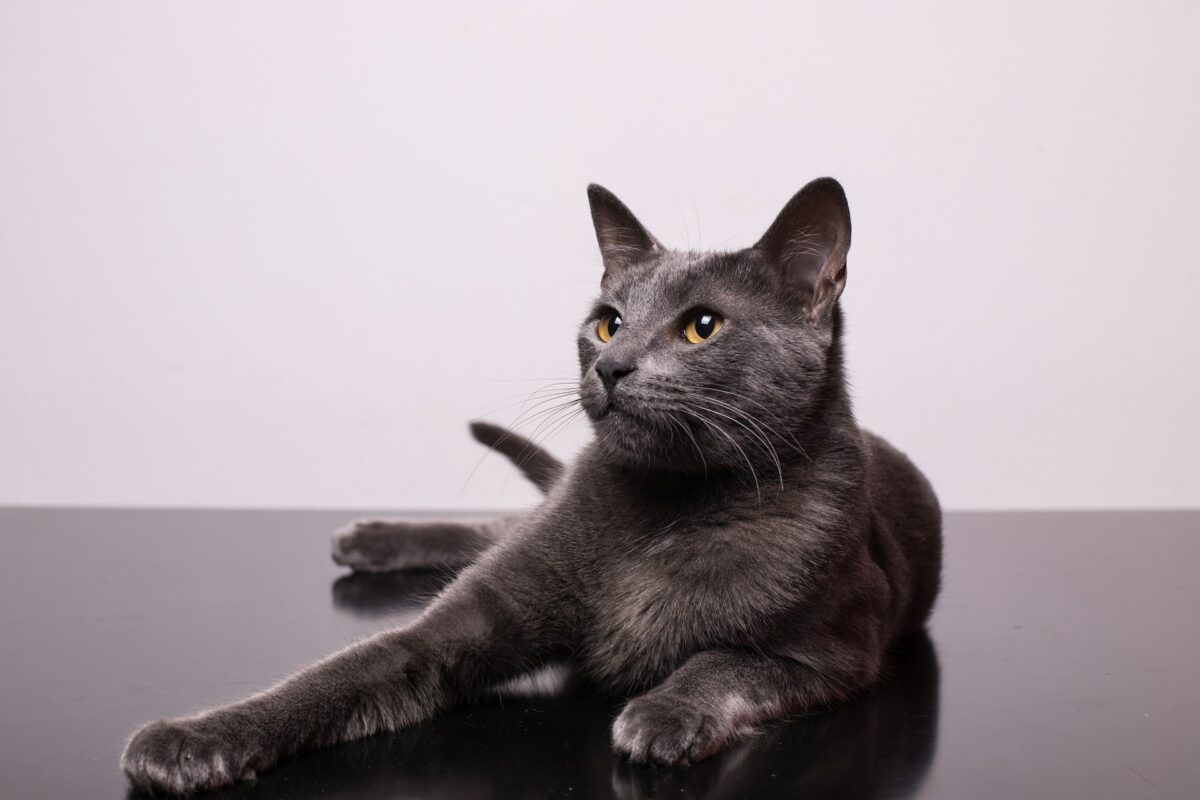
Cats are known for their unique behaviors, including their heat cycles. If you are a cat owner, it is essential to understand your cat’s heat cycle, especially if your cat is pregnant. This comprehensive guide will discuss when a pregnant cat’s heat behavior starts.
Understanding Cat Heat Cycles
Before discussing when a pregnant cat’s heat behavior starts, it’s essential to understand cat heat cycles. Estrus cycles, commonly called heat cycles, are experienced by female cats. During these cycles, a cat’s body prepares for mating and pregnancy. A cat’s heat cycle usually lasts around a week but can vary from a few days to two weeks.
Several signs accompany heat behavior in cats; a cat’s heat cycle including:
- Increased vocalization
- More affectionate behavior
- Rolling and rubbing against surfaces
- Increased urination
- Restlessness
- Licking of the genital area
- Displaying the lordosis reflex (arching of the back and raising of the hindquarters)
When Does A Pregnant Cat’s Heat Behavior Start?
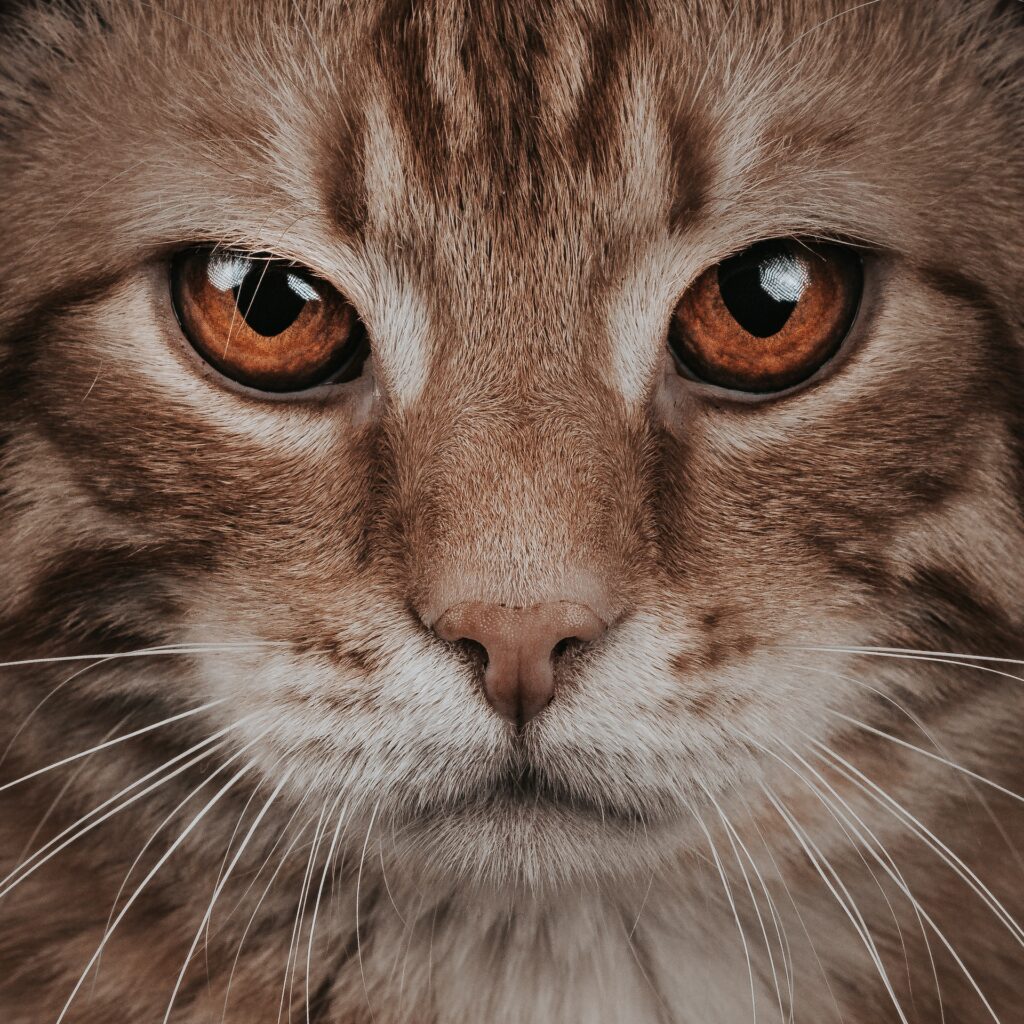
A pregnant cat’s heat behavior typically starts around four weeks after she has been impregnated. During this time, the cat may still display the signs of heat behavior, even though she is already pregnant. However, it’s worth noting that not all pregnant cats will exhibit these behaviors, and some may not display them at all.
It’s essential to remember that pregnant cats should not be bred again during this time, as it could lead to complications or even harm the mother and her kittens. If you suspect your cat is pregnant and displaying heat behavior, it’s essential to consult your veterinarian for advice on how to care for your cat..
Understanding your cat’s heat cycle is essential, especially if your cat is pregnant. A pregnant cat’s heat behavior can start around four weeks after conception, and it’s important to monitor your cat’s behavior during this time to ensure that the cat and kittens are healthy and safe.
Vomiting and Nesting Habits
Being familiar with your pregnant cat’s behavior, including vomiting and nesting habits, is important if you are a cat owner. In this comprehensive guide, we will discuss these two topics in detail.
- Vomiting In Pregnant Cats
It is common for pregnant cats to experience vomiting during their pregnancy. Around 25% of pregnant cats may encounter episodes of vomiting in their pregnancy.
The causes of vomiting can vary, but it is often related to hormonal changes and an increase in the cat’s sensitivity to certain foods.
Sometimes, vomiting can lead to dehydration and other complications that harm the mother and her kittens.
- Nesting Habits Of Pregnant Cats
Nesting habits are frequent in pregnant cats, especially as they approach their due date. Nesting typically involves the cat seeking a safe and comfortable space to give birth and care for the kittens.
Some common signs of nesting behavior in pregnant cats include:
- Restlessness and pacing
- Seeking out quiet and secluded areas
- Gathering materials such as blankets, towels, or other soft items to create a nest
- Licking and grooming the nesting area
It is important to provide your pregnant cat with a safe and comfortable space to nest in, such as a quiet room or enclosed area with soft bedding. You may also want to provide your cat access to food and water in this area to ensure the cat is comfortable and well-nourished during the birthing process.
Vomiting and nesting habits are everyday in pregnant cats. If your pregnant cat is experiencing vomiting, it is essential to monitor the cat closely and consult your veterinarian for advice. Nesting behavior is also expected in pregnant cats, and it is essential to provide your cat with a safe and comfortable space to give birth and care for her kittens.
Litter Box Changes
Cats are known to be clean animals, and this trait is especially apparent when it comes to their litter boxes. However, if your cat is pregnant, there are some significant changes you need to make to ensure her safety and comfort.
Here’s a comprehensive guideline to help you manage your pregnant cat’s litter box changes:
- Delegate Litter Box Cleaning To Someone Else
Pregnant women should not handle cat feces due to the risk of toxoplasmosis, which can cause congenital disabilities. Therefore, it’s crucial to assign the task of washing the litter box to someone else if you’re pregnant and own a cat.
Learn more about Is it safe to keep a cat during pregnancy?
- Increase Litter Box Frequency
Pregnant cats tend to urinate and defecate more frequently than non-pregnant cats. Therefore, you should increase the frequency of litter box cleaning to prevent waste buildup and keep your cat’s litter box clean and fresh.
- Use Unscented Litter
Pregnant cats have a heightened sense of smell, and scented litter can be overwhelming and unpleasant. Using unscented litter during your cat’s pregnancy is best to avoid discomfort.
- Provide A Big Litter Box
As your pregnant cat’s belly grows, she may have difficulty maneuvering in a small litter box. Providing a larger and more spacious litter box can make it easier for her to move around and use it comfortably.
- Switch To Low-Sided Litter Boxes
Pregnant cats may have difficulty climbing over high-sided litter boxes. Switching to a low-sided litter box is best to make it easier for your cat.
- Consider The Litter Box Location
Pregnant cats can be easily stressed, and the location of their litter box can contribute to their overall comfort. Position the litter box in a calm area of your home to avoid unnecessary stress.
- Monitor Your Cat’s Litter Box Usage
Keep an eye on the usage of the cat’s litter box during her pregnancy. Any changes in the frequency or consistency of her urine or feces could indicate a health issue that requires veterinary attention.
Managing a pregnant cat’s litter box changes requires careful attention to detail. Following these guidelines can help ensure your cat’s safety and comfort throughout the cat’s pregnancy.
Check out How to Keep Your Cat’s Litter Box Clean here.
Veterinary Care For Pregnant Cats
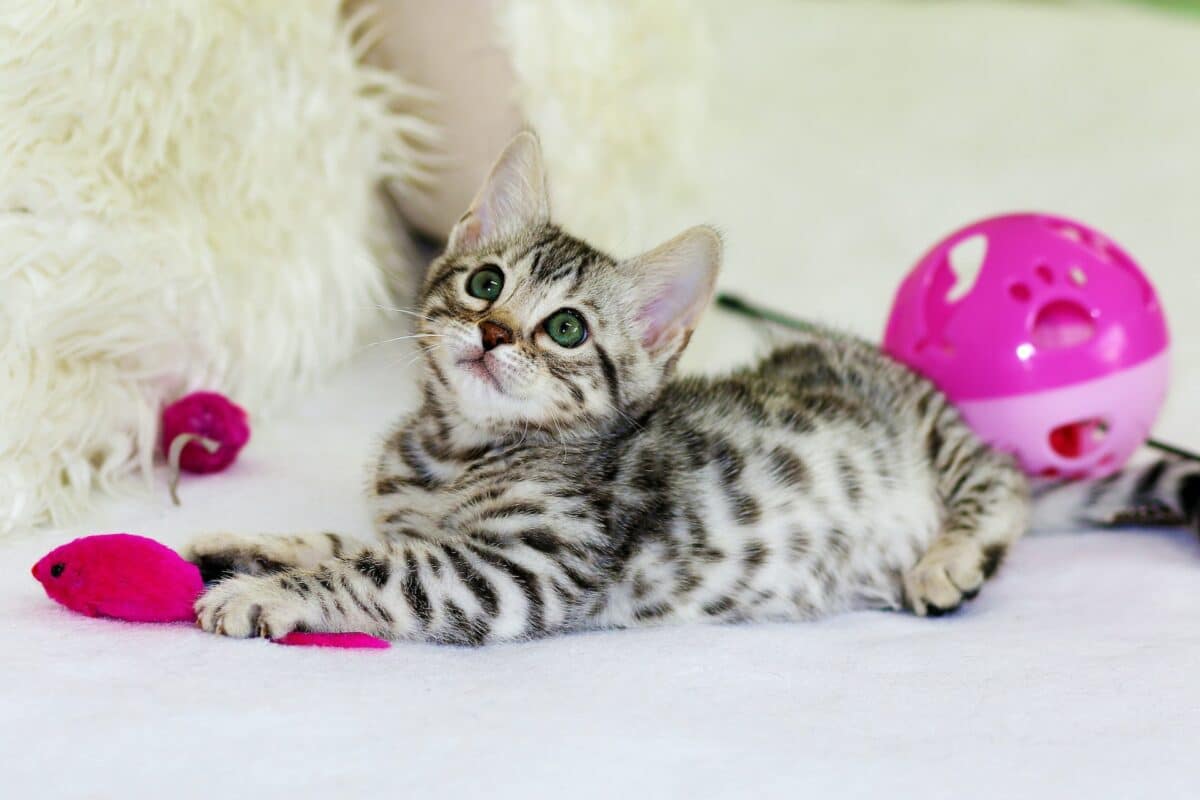
Caring for a pregnant cat is an exciting but challenging time for pet owners. Getting veterinary assistance is crucial to safeguard the health and safety of your cat and her growing offspring.
Here’s a comprehensive guideline on veterinary care for pregnant cats:
- Schedule A Pre-Pregnancy Check-up
Before breeding your cat, schedule a check-up with your veterinarian. It will ensure that your cat is healthy enough for pregnancy and identify any potential issues that must be addressed.
- Schedule Regular Prenatal Check-Ups
Once your cat is pregnant, schedule regular prenatal check-ups with your veterinarian. During these visits, the vet will monitor your cat’s weight gain, check for signs of illness or complications, and provide any necessary treatment.
- Vaccinations
Ensure your cat is up-to-date on all her vaccinations before pregnancy. Vaccinations help prevent illnesses that could harm your cat or her developing kittens.
- Nutrition
Pregnant cats have unique nutritional needs. Your veterinarian can suggest a proper diet that provides nutrients for your cat and her developing kittens.
- Parasite Prevention
Fleas, ticks, and other parasites can pose a risk to the pregnant cat and her kittens. Your veterinarian can recommend safe and effective parasite prevention methods.
- Labor And Delivery
As your cat nears the end of her pregnancy, your veterinarian can guide the signs of labor and delivery. If there are complications during delivery, your vet can provide the necessary assistance.
- Postnatal care
After your cat gives birth, it’s important to continue receiving veterinary care. Your veterinarian can monitor your cat and her kittens for potential health issues, provide vaccinations, and recommend spaying or neutering when appropriate.
Veterinary care for pregnant cats is essential to ensuring the health and safety of your cat and her developing kittens. By following these guidelines and working closely with your veterinarian, you can help ensure a successful and healthy pregnancy for your cat.
Learn more about Pregnant Cat Care Tips here.
How Long Is A Cat’s Pregnancy?
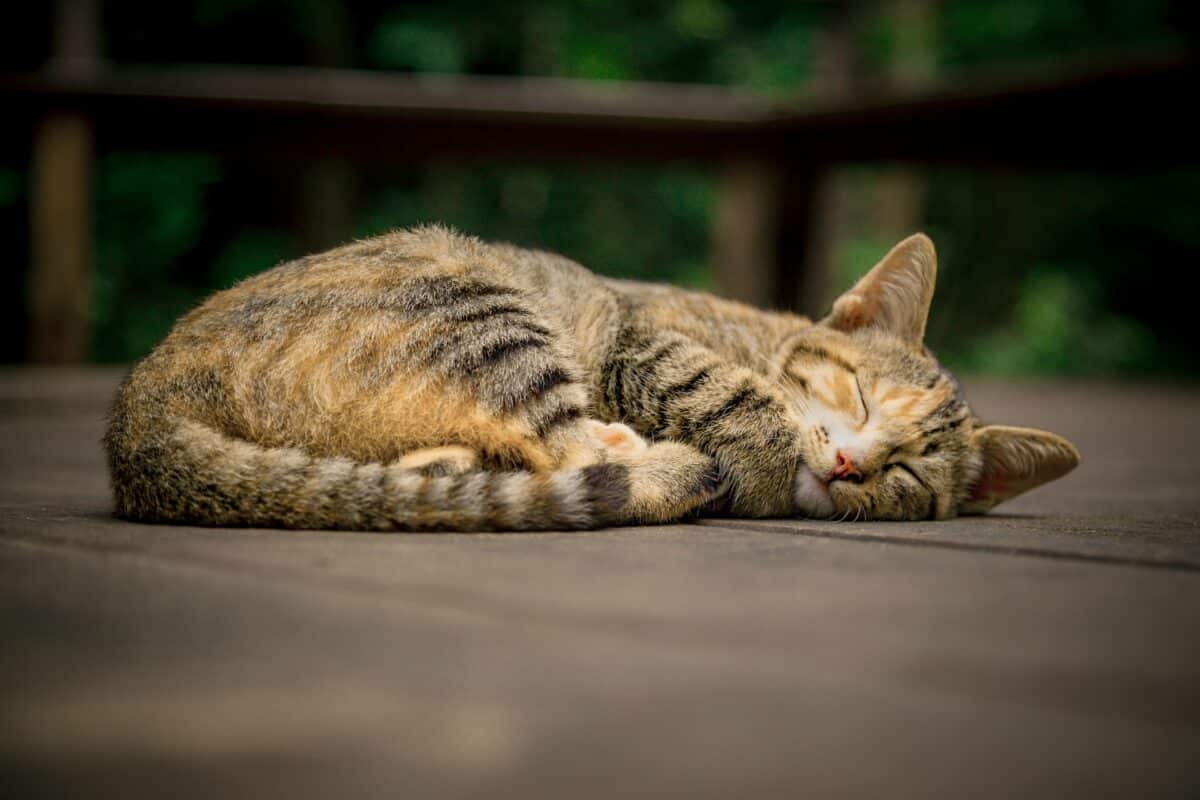
If you’re a cat owner, you may wonder how long your cat’s pregnancy will last. The answer is that the length of a cat’s pregnancy, also known as gestation, varies but usually lasts around 63 to 65 days.
During this time, your cat will go through several stages of pregnancy, including fertilization, implantation of the fertilized egg in the uterus, and development of the fetus. As the pregnancy progresses, you may notice physical changes in your cat’s behavior and appearance, such as weight gain and a swollen belly.
Vet Visits For Pregnant Care
If you have a pregnant cat, it is essential to take her to the veterinarian for regular checkups to ensure her health and the health of her kittens.
- Your vet will advise you on the best time to bring your pregnant cat in for a checkup, typically around 3-4 weeks after conception.
- The vet will examine your cat and monitor her weight gain, check for signs of complications or illnesses, and confirm the pregnancy with an ultrasound.
- As your cat gets closer to her due date, your vet may recommend additional checkups to monitor her progress and prepare for the delivery.
Routine checkups with your veterinarian are crucial for ensuring a healthy pregnancy and safe delivery.
Conclusion on Early Signs of Cat Pregnancy
If you suspect your cat is pregnant, there are some early signs. Behavioral changes, such as displaying more affection, reduced appetite, and exhibiting nesting behavior, may be observed. Physical symptoms can also be indicators of pregnancy, such as nipple enlargement, weight gain, and a swollen belly.
When you observe these indications, you must schedule a veterinary appointment to confirm the pregnancy and seek guidance on proper care for your cat. By being aware of these early signs, you can help ensure that your cat has a safe and healthy pregnancy and that her kittens are born healthy and happy.
Thank you for reading Early Signs of Cat Pregnancy. We hope you liked his article. Also, look at Are Snake Plants Toxic To Cats? or Ugliest Cat In The World or Watch: The World’s Oldest Cat – Meet Creme Puff.
- Animals and Wildlife in Colorado - April 24, 2024
- Best Places to see Sloths - April 24, 2024
- Where to See Alligators in the Wild - April 24, 2024

